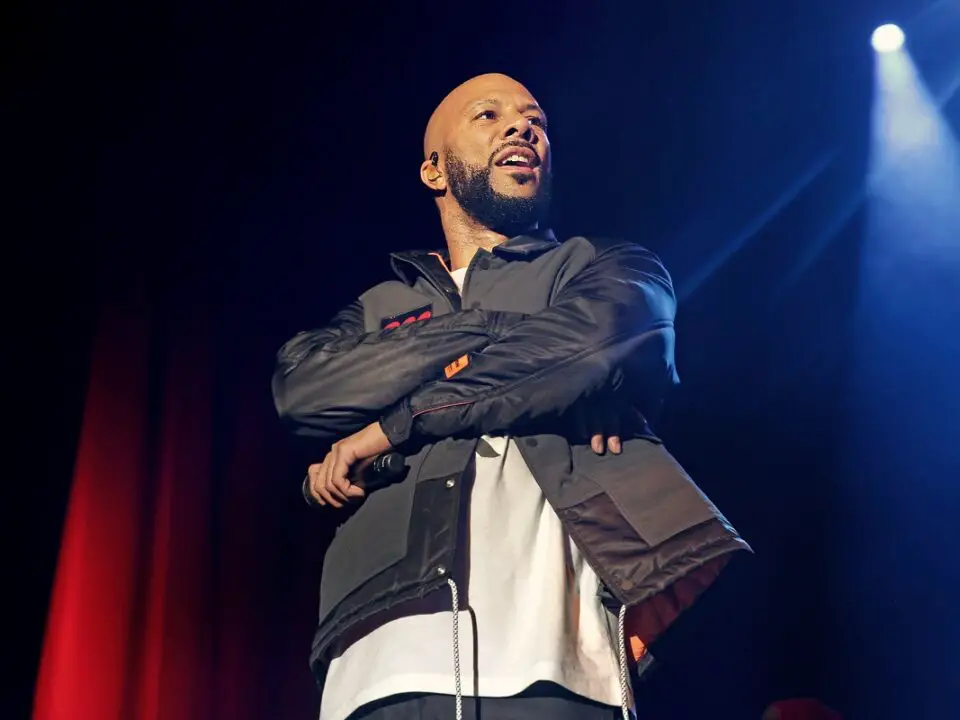Back in 2002, some rap fans were ready to declare Common’s music career dead after he released the heavily panned Electric Circus album. However, the Chicago-bred emcee returned to form three years later with the now-classic Be.
Part of Be‘s critical success was due to the production provided by Kanye West. Common then teamed up with his G.O.O.D. Music label boss again for the well-received, chart-topping Finding Forever in 2007.
Apparently, the two Hip Hop legends were supposed to connect for a third installment in their rapper-producer tag team. Common talked about missing out on securing a threepeat with Kanye West during a recent interview with The Coda Collection.
“If there’s anything that I sometimes wish is I wished I would have did a third [album] with Kanye. I will say that. It’s very rare I’d be like, ‘Man, I should’ve did this or wish I did this.’ Because everything happens in its divine time,” said Common. “But I would’ve loved to have done a third album with Ye. And maybe that’ll happen at some other point. But at that time it would have been really dope.”
The Grammy and Oscar winner added, “Because I still was on G.O.O.D. Music, I was like, ‘Hey, check this out. I’m working with Pharrell here.’ He hopped in and he listened to it and was like, ‘Yo, that’s dope.’ Then it was a couple of joints like he would hop on, just to do some vocals. Obviously, we have songs that we recorded that didn’t make Finding Forever or Be, but we didn’t start a third project.”
While Be and Finding Forever are among Common’s most celebrated bodies of work in his catalog, Electric Circus was viewed by many listeners as a musical experiment that did not live up to expectations. It was seen by some reviewers as too far removed from the sound that was associated with the Soulquarian.
“Man, I’m so proud of that album,” said Common about Electric Circus. “It’s something about being an artist and taking chances and taking risks and being true to where you are as an artist at the time that eventually kind of builds its a strength and builds a superpower and almost a respect. Even if people didn’t like a particular album, they still be like, ‘Okay, you went there and you were being yourself. We know you ain’t just chasing money, you ain’t just chasing the hype, you really actually an artist.'”
He added, “I think the rollercoaster that happens for all of us in life and through being an artist, people respect that and they gravitate to that. They might talk about you at the time where you’re low, but when you go back up they’re like, ‘Yeah, that’s what I’m talking about.’ They like seeing that victory and fight in you. So my personal opinion about Electric Circus, the reason why I say I’m proud of it is because I went to what I was feeling. I wasn’t like, ‘Yo, let me try to do another Like Water for Chocolate or let me try to do another Resurrection.’ Because you know, people always say, ‘Man, where’s Resurrection? I need another Resurrection.’ But, I did Resurrection. I can’t go back and be that same age.”
Common went on to talk about how he was listening to and influenced by Jimi Hendrix, Pink Floyd, Led Zeppelin, Radiohead, and Stereolab at the time he was creating Electric Circus. He chose to pass on boom-bap beats which apparently frustrated his production team of Ahmir “Questlove” Thompson and J Dilla.
“I was ridiculed and talked about and it wasn’t received good and that’s never a good feeling, but I felt victory in doing something that I felt I was true to. And I’m a dreamer so I felt like, ‘Man, they’re going to get to it sooner or later,'” explained Common, before adding, “But in my heart, I’m proud of it. I’m grateful for it. I think it’s one of the most significant albums in my career.”
